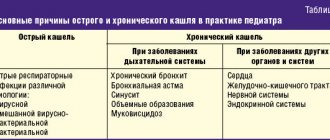A symptom such as vomiting in a small child may not be a dangerous sign if, for example, it appears after overeating. However, much more often, by vomiting, the child’s body signals adults about various diseases. Why might a child have bouts of vomiting, why is it dangerous and how can you help your baby?
How to distinguish vomiting from regurgitation in a baby after feeding?
Breastfed babies often burp, because their digestive system is in the process of improvement. However, regurgitation should not be confused with vomiting.
If you detect any alarming signs or conditions, you should definitely consult with your pediatrician, and for “home diagnostics” you can use the following tips.
Main differences:
- Vomiting occurs at any time of the day, regardless of food intake. Regurgitation is observed immediately after eating, or during the next hour after.
- When spitting up there is no high temperature, the child behaves as usual, there is no reason to worry. Vomiting, on the other hand, is often accompanied by other alarming symptoms.
- The contents of the stomach, which is a milky or curd mass, occurs during regurgitation. If it is a more liquid consistency, with admixtures of mucus, undigested food debris, blood or other inclusions, we are talking about vomiting in children.
- The intensity of the release of stomach contents also matters. If undigested mass has simply flowed out of your mouth, this should not cause any concern. In the case of a gushing ejection, when the contents are scattered over a considerable distance, this is most likely vomiting. To prevent tragic incidents, you should not leave the child unattended, and after eating, be sure to hold him in a “column” so that excess air (the most common cause of regurgitation) can escape naturally.
Frequent regurgitation is observed in more than half of completely healthy children and is the norm. If the child is active, develops correctly and gains weight, there is no reason to worry.
Typically, such phenomena normalize on their own when the child reaches six to seven months.
In any case, if you have questions or suspect any problem, it would be a good idea to show the child to a specialist, and monthly visits to the doctor in the first year of life are not just a whim, but a necessity for normal monitoring of the baby’s development and growth.
Safe Reasons
Vomiting is not always an alarming symptom, although this sign greatly frightens parents. It should be noted that the digestive organs of newborns do not function as well as those of an adult, so some “failures in the system” are acceptable and quite probable.
Why does vomiting occur:
- The child has eaten too much. In this case, regurgitation or vomiting may occur. It is imperative to adjust the diet, dividing the daily portion into 6-7 doses. The smaller the baby, the more often feedings occur.
- Diet changes. Replacing formula milk, errors in the nutrition of a nursing mother and the introduction of complementary foods - all this can provoke such a reaction. If you act carefully, taking into account previous negative experiences and mistakes, you can cope with such problems on your own.
- Overexcitement and active games. To avoid this, it is necessary to limit the baby’s activity about half an hour before meals and for the same amount after. It is not recommended to bathe your baby immediately after eating, or to actively engage in gymnastics and outdoor games.
A characteristic feature of such cases is the possibility of independently eliminating the cause. Of course, it is difficult for young parents to determine the true causes of vomiting, so be sure to monitor your child after an attack.
If the baby is still active, there is no vomiting, there is no fever or other negative symptoms - everything is fine.
Dangerous reasons
Vomiting cannot be considered as a separate disease. Most often this is a symptom of various problems in the body associated with the digestive system or nervous disorders.
If we exclude non-dangerous causes of vomiting, we can identify several more alarming conditions accompanied by vomiting.
Dangerous diseases:
- Appendicitis.
- Encephalitis.
- Meningitis.
- Intracranial pressure and tumors.
- Otitis media
- Congenital pathologies of the gastrointestinal tract.
- Gastroenteritis.
- Toxic poisoning.
- Abdominal injuries.
- Concussion.
- Diabetic conditions.
- Infections of the genitourinary system.
- Infectious or viral diseases.
- Hernia.
- Side effect of drug treatment.
- Diseases of the endocrine or nervous system.
- Intestinal obstruction.
Which doctor should I contact?
If vomiting is not observed for the first time, but it is short-term, then you need to go to an appointment at the clinic. If this is repeated, continuous vomiting, then you will need to call an ambulance.
So which doctor should you contact at the clinic for advice:
- Initially, you will need to visit your pediatrician. He will conduct an initial examination of the child, draw his conclusions and determine which specialist you need to contact.
- Gastroenterologist. Most often, it is to this specialist that the pediatrician refers. This doctor treats pathologies of the gastrointestinal tract, as well as disorders of the digestive process.
- Neurologist. You will be sent to such a specialist if the pediatrician suspects cerebral vomiting, because it will be directly related to neuralgia.
- Surgeon. You will be redirected to this specialist if the baby is diagnosed with intestinal obstruction, the presence of a foreign body in the gastrointestinal tract, pyloric stenosis, cardiospasm or appendicitis.
Associated symptoms
In severe conditions, vomiting cannot be the only symptom.
If the urge to vomit is repeated, and against this background the child is too restless, or, conversely, apathetic, it is imperative to seek medical help.
To make a reliable diagnosis, it is necessary to provide complete information about the time of deterioration of the condition, the frequency and amount of vomiting, and, if possible, provide material for laboratory examination.
What symptoms should you be wary of:
- Weakness and apathy of the child.
- Restless crying that is difficult to stop.
- Increased body temperature.
- Intestinal upset, diarrhea and flatulence.
- Blood and black matter in the vomit.
- Intestinal contents in vomit.
- Blue discoloration of the lips or nasolabial triangle.
- Refusal to drink, retention of urination for more than four hours.
All this can be a signal of the development of serious pathologies. In some cases, it is possible to eliminate the causes at home, but usually pediatricians choose the tactic of medical control, in which the child is hospitalized in a hospital.
There is no need to be afraid of this, because such measures can save lives in the event of a sharp deterioration. That is why it is not recommended to endure such conditions at home; at a minimum, you need to consult a knowledgeable specialist.
Additional symptoms
Parents are interested in the question of why vomiting is always worsened by other symptoms. Most often, the baby additionally develops vomiting and diarrhea. By analyzing them, you can correctly diagnose:
- During food poisoning, the baby's well-being can be aggravated by diarrhea. This situation occurs quite often after the baby begins to eat adult food. The symptom indicates food poisoning or improper functioning of the gastrointestinal tract. The situation can be aggravated by an increase in body temperature. The reaction can be not only due to complementary feeding, but also due to mother's milk. In this case, individual intolerance to a component of the mixture or medication is diagnosed.
- Body temperature increases in case of severe intoxication of the body. Vomiting in this case is considered as an individual reaction of the body to external negative changes. The symptom accompanies acute forms of poisoning and infection that develops in the intestines. A noticeable increase in body temperature is recorded at the moment of eruption of the first milk teeth.
- However, vomit does not always look the same. It can occur against the background of immaturity of the digestive system. The symptom appears in case of problems in the field of neurology or allergies, lactase deficiency or the inability to digest cow protein. Vomiting may occur against the background of functional disorders. For example, excessive amounts of liquid may enter the stomach. In this case, the baby develops a cough, which can cause a gag reflex.
- Vomiting also occurs due to the penetration of a large amount of liquid into the stomach. The child might choke on it. The reflex can work against the backdrop of too active games. After them, it is not recommended to move on to active games.
When is a doctor needed?
It is often difficult for young parents to determine the pathology on their own. A characteristic feature of childhood diseases is their rapid development, so it is useful to know in what situations medical care is urgently needed.
See a doctor immediately if vomiting starts after:
- The child fell. The height and cause of the fall do not matter. In such situations, there may be a concussion, as well as internal bleeding, so calling an ambulance cannot be delayed.
- The child ate a low-quality or dangerous product. In such cases, vomiting is a natural reaction of the body, which seeks to cleanse the stomach of toxins before they enter the circulatory system.
- Vomit entered the respiratory tract. It is definitely worth clearing your mouth of any residue, rinsing it if possible, and performing artificial respiration. Even if everything went well and the child’s life is not in danger, such situations threaten the lungs with infection and the development of an inflammatory process.
Repeated and profuse vomiting is also a reason to consult a doctor. Symptoms of dehydration in the first year of life develop very quickly, so if you notice a sunken fontanel, weakness and drowsiness of the child, as well as fever or diarrhea, be sure to call an ambulance.
Danger of vomiting
Although vomiting is a protective reflex that helps remove toxins, microorganisms, foreign bodies or excess food from the body, it is quite often dangerous for a newborn or infant.
First of all, vomiting is dangerous due to the risk of causing dehydration. The child loses mineral salts and fluid, their balance in the tissues is disrupted, which affects the functioning of the baby’s entire body. And the smaller the baby, the more dangerous such losses are for him. As soon as parents notice that the baby’s skin has become dry, the fontanel has sunk in, the baby is crying without tears, is lethargic, there has been no urination for a long time, the baby’s weight has decreased, they should immediately call a doctor.
First aid
Before the doctor arrives, it is better to help the child yourself. To do this, every parent should know the basic rules for such cases. At this time, you cannot leave the child alone, because a repeated attack can block the airways.
Often vomit enters the lungs and bronchi, causing local inflammation. For any conditions and causes of vomiting, the following first aid algorithm can be described.
What to do before the doctor arrives:
- Place the child on his side or pick him up to prevent vomit from entering the respiratory tract. If vomiting occurs again, tilt the baby’s torso slightly forward to eliminate the risk.
- Don't give any food. After an attack, you need to give some boiled warm water so that vomit does not accumulate on the esophagus (which can lead to erosion).
- Change and wash the child and, if possible, rinse his mouth. It is also necessary to clear the nasal passages from possible blockage with vomit.
- If there is diarrhea, wash and change the baby.
- In case of food poisoning, you can give a little soluble enterosorbent (Smecta, activated carbon or its analogues).
- At high temperatures (above 38 degrees), give an antipyretic. It is best to keep paracetamol suppositories or its analogues in the refrigerator for these purposes.
Main tactic: stay calm. Children are very susceptible to the mood of their parents, so excess nervousness and hysterics will only worsen the little one’s condition. If hospitalization cannot be avoided, you should prepare all the necessary things and documents in advance.
Dilatation of the cardiac sphincter of the stomach
The cardiac sphincter is the space between the stomach and esophagus. If its congenital expansion is observed, then the contents of the stomach constantly flow into the esophagus. Vomiting may occur unexpectedly when the baby is positioned on his back or side and rolls over onto his tummy. It is advisable to feed in an upright position; breast milk or formula should be fed in fractional portions.
Often, as you get older, the functioning of the cardiac sphincter improves. However, if weight is not gained and vomiting is constantly observed, a visit to the doctor is necessary. It is likely that you will have to consult a surgeon. If you have this pathology, a specialist may advise you to briefly switch to baby food with a viscous consistency. As soon as the baby gets better, it is permissible to return to the usual feeding diet.
Treatment
The optimal treatment plan is determined by a specialist and only after determining the real cause of vomiting. To do this, it is necessary to provide complete information about the child, the frequency of attacks and possible nutritional errors or suspected injuries.
Assessing the child’s condition, the need to replenish water and electrolyte balance, as well as drug treatment carried out in a hospital setting will help quickly and effectively eliminate vomiting and associated symptoms. In the case of acute surgical pathologies or congenital problems of the gastrointestinal tract, the surgical method is used.











